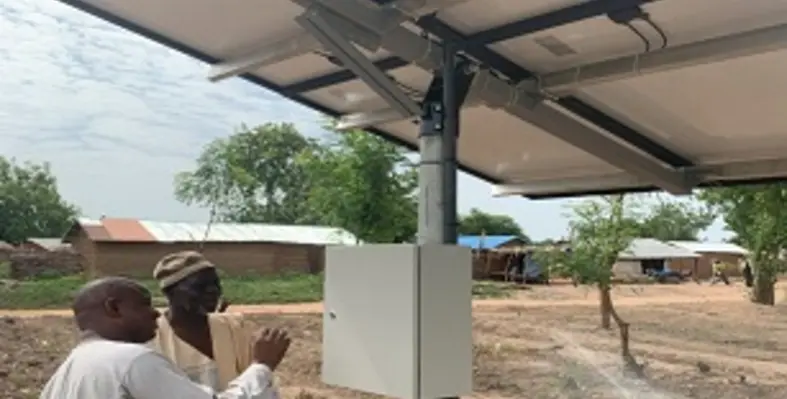A project undertaken by the Solar Electric Light Fund (SELF) has revamped electrical infrastructure in the Kalalé District of Benin, helping to provide power for vital systems such as water pumps and vaccine refrigeration
SELF was backed by funding from donors such as the Millennium Challenge Corporation (MCC) and has now installed 24 solar-powered water pumps and five solar-powered vaccine refrigerators across the district, all of which are operational and serving the local communities.
Robert Freling, SELF’s executive director, commented, “You can provide all the vaccines in the world, but if a clinic doesn’t have the ability to refrigerate them, it doesn’t matter. Electricity is a prerequisite for healthy communities.”
The project has helped prove the impact solar power can have on the continent, especially for rural communities that are not connected to a traditional electric grid. In Benin, there are few cases of power grids being extended past urban centres but distributed solar energy systems can be set up virtually anywhere to provide a steady stream of power for a variety of needs.
For the Benin project, a solar array was hooked up to a water pump in each of the 24 villages. During daylight hours, the pump draws water from an underground source into an elevated reservoir. The water is then gravity-fed to a distribution station, where local people can access it.
The vaccine refrigerators are direct-drive as well. This improves reliability, but the lack of a battery also means there’s no way to store surplus power generated during peak sunlight hours. To make good use of this electricity, the refrigerators are equipped with an energy harvest control (EHC) mechanism. The EHC diverts surplus energy to charge ancillary devices in the clinic, such as battery-operated lights or cell phones. As an additional measure of accessibility surrounding the five clinics, solar-powered streetlights were installed to help light the way for patients at night.
“The Millennium Challenge Corporation invests in country-led solutions that reduce poverty and foster economic growth,” remarked, Jason Bauer, director of finance, investment and trade at MCC. “This investment helps address health constraints that bind economic growth for thousands of people in the Kalalé District, while adapting to growing climate challenges.”












